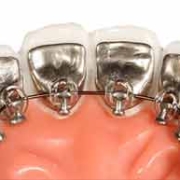Are Clear Aligners Safer than Traditional Braces?
Millions of people worldwide love clear aligners because they eliminate the need for traditional braces. Yet, there’s more to these dental appliances than esthetics. If you’re wondering if clear aligners in Franklin, TN, are safer, we’ll examine what you should know about the two.
Clear Aligner Safety
Clear aligners like Invisalign in Franklin, TN, are typically considered safer than traditional braces. However, it’s important to note that the differences in safety are relatively minor. Because clear aligners are removable and they don’t involve brackets or wires, there are fewer risks to sensitive gums and cheeks. This means fewer cuts and less irritation overall. So, while traditional braces aren’t unsafe in that they don’t pose any major health risks, they can lead to more mouth abrasions.
Additional Advantages of Invisalign
Invisalign allows patients to take care of their teeth the same way they did before they needed clear aligners. So, unlike traditional braces, where floss needs to be threaded in between the brackets and food particles build up along the surface of the wires, it’s easier to stick to an optimal oral hygiene routine. It is possible to keep up with brushing and flossing with traditional braces, though there is an increased risk of tooth damage or decay simply due to impediments.
Invisalign also doesn’t require patients to change their eating habits. Clear aligners allow you to remove the trays whenever you eat, so you don’t have to worry about skipping out on popcorn or taffy. This can make keeping up with the recommended schedule easier, which is especially important for teens and adolescents who may resent their latest responsibilities.
Invisalign in Franklin, TN
There are some people who can’t get clear aligners due to the severity of their oral health. Invisalign works best in mild to moderate cases, and for some patients, only traditional braces will do. However, if it’s at all possible to get clear aligners, an orthodontist in Franklin, TN will typically recommend them before any other treatment. Traditional braces certainly aren’t unsafe, but they open the door to more potential issues (including small cuts that can eventually lead to bigger problems).











